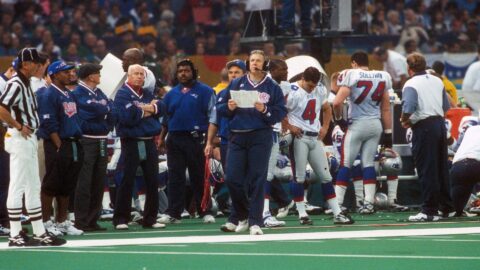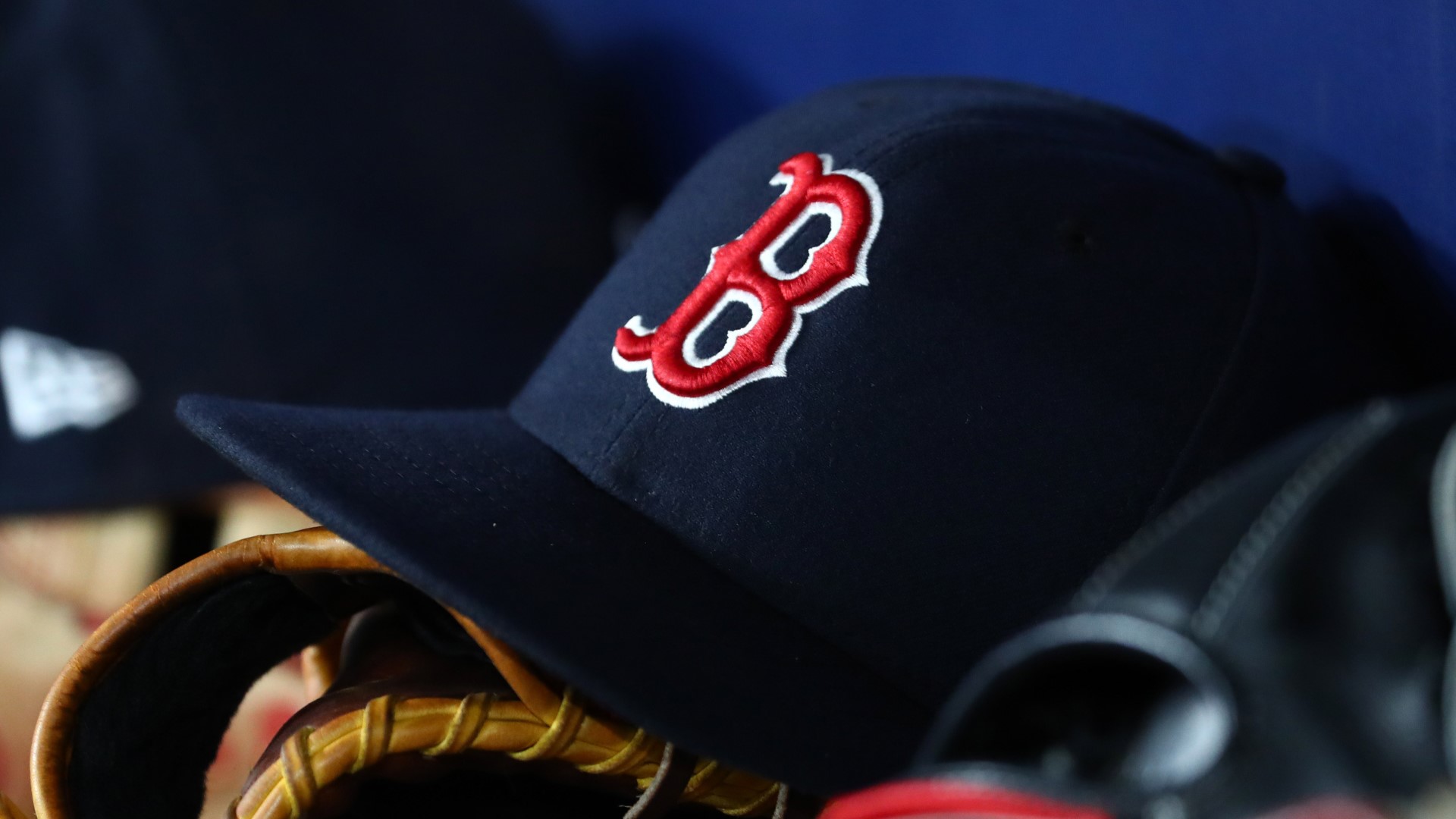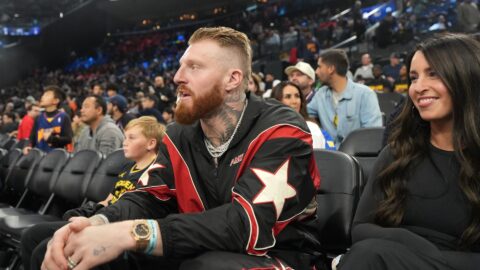 The Houston Astros haven’t been relevant since 2005 which, coincidentally, immediately preceded the retirement of longtime face of the franchise Jeff Bagwell. They’re already at 105 losses — their second consecutive 100-loss season — and counting with two series left in the 2012 regular season, and they’re about to move to the deeper league and the powerful AL West beginning in 2013. They won’t be as bad this year as the 1962 Mets — or even the 2003 Tigers — but the former Colt 45’s are a long, long way from contending.
The Houston Astros haven’t been relevant since 2005 which, coincidentally, immediately preceded the retirement of longtime face of the franchise Jeff Bagwell. They’re already at 105 losses — their second consecutive 100-loss season — and counting with two series left in the 2012 regular season, and they’re about to move to the deeper league and the powerful AL West beginning in 2013. They won’t be as bad this year as the 1962 Mets — or even the 2003 Tigers — but the former Colt 45’s are a long, long way from contending.
All that being said, the Astros are finally on the right track after half a decade of steering rudderless.
On Thursday news broke that Houston had hired its 2013 manager early, selecting Washington Nationals third base coach Bo Porter to replace the midseason-deposed Brad Mills and current interim Tony DeFrancesco. Porter is a solid hire with local roots, noted for his overall baseball acumen, specifically player evaluation skills. He also marks the final piece in a totall overhaul of the franchise’s managerial face, with complete ownership, front office, scouting and field management turnover in under a calendar year.
In fact, remember phrases like “player development” and “talent evaluation,” because you’re going to hear them a lot around the new-look Astros.
Porter is a baseball lifer who played the game at the highest level for a couple seasons. Though he has only one year of managerial experience in the minor leagues, he’s been under consideration for several big-league jobs the past couple offseasons, and served a major-league apprenticeship as the right-hand man to Kirk Gibson with the Arizona Diamondbacks.
The other two key figures with Houston, however, are about as far away from prototypical baseball guys as you can get. General manager Jeff Luhnow is more a scholar than a traditional front office man, holding dual B.S. degrees in business and engineering from University of Pennsylvania, and an MBA from Northwestern. Before working for the St. Louis Cardinals’ scouting department for eight years, Luhnow worked in a litany of business jobs — everything from marketing for Petstore.com to working for a global marketing consulting firm.
Luhnow was very highly regarded for his talent evaluation with the Cardinals, and though his hiring in Houston was mostly lauded, it was still seen as a bit unconventional — even in light of the wave of Theo Epstein-branded analytics experts and “Google Boys” across Major League Baseball.
However, his appointment wasn’t nearly as eyebrow raising a hire as the team made at the end of August to fill the role of pro scoting coordinator. That pick was Baseball Prospectus writer Kevin Goldstein, known for his encyclopedic knowledge of minor league prospects and sarcastic Twitter persona.
Basically, the Astros have given an enormous amount of responsibility to two men who have no prior experience working in any similar capacity for a professional sports organization.
Nonetheless, like Luhnow, Goldstein’s choice was mostly looked at as “outside the box” — but undoubtedly in a good way. All the Astros’ moves gave clear signals in just what direction the organization is moving.
That’s why Luhnow’s comments to the media after Porter’s hiring broke were a bit odd. While the Astros are clearly going to great lengths to build from within via scouting and development, as their hires suggest, that’s a slow process, and coming into 2012 the Astros ranked 27th in overall talent among the 30 minor league organizations, according to FanGraphs.
“I think [Porter] is going to push us to get better, he’s going to push us to get better quickly, and he’s going to shorten the time that it takes for us to get to where we want to be as an organization, which is where the Houston Astros are competing year in and year out for division titles and championships,” Luhnow told reporters.
That’s a problem. It could well be that Luhnow has to say such things publicly to appease Houston baseball fans who won’t be attracted back to Minute Maid Park just because the club is thinking about removing the train above left field in lieu of more advertising. But given that Houston is a mid-market organization that’s not going to buy it’s way into contention, the path the Astros are looking at is an arduous one — basing an organizational philosophy on minor-league talent evaluation while simultaneously trying to rebuild that farm system from the ground up.
“He’s been part of the Nationals’ ascent, and that’s a model that we look at as the Astros to say we’d like to get to that point where we can go from a team that has a losing record to a team that can win a division and compete for a championship like the Nationals are in a position to do this year,” Luhnow said of Porter.
That’s all well and good, but hopefully by hiring Porter the Astros don’t have unrealistic expectations of their manager. The Washington Nationals may have made an incredible turnaround in just one offseason, but the former prospects had already benefited from a couple seasons together with the big club, and the team has far greater financial resources than Houston — able to bring in Gio Gonzalez via trade, Jayson Werth via free agency, sign Ryan Zimmerman to his extension and overpay in the draft for Stephen Strasburg and Bryce Harper.
The Nationals shouldn’t be the Astros’ model — at least not yet.
Houston has little talent at the major league level — a doubly whammy insofar as they don’t have the ability to buy any instant-impact prospects via trade — and don’t have fortifications coming up through their own system any time soon. The organization’s best prospects, first baseman Jonathan Singleton and outfielder George Springer, enjoyed encouraging 2012 campaigns but neither has had even a whiff of Triple-A, yet, while pitcher Jarred Cosart — like Singleton, acquired from the Phillies in the Hunter Pence trade — stalled a bit in a full season at Double-A.
All in all, it’s going to take time, some luck and a lot of good decisions on the player evaluation front for the Astros to get back in contention. Houston’s put the decision-making pieces in place to make that happen, but owner Jim Crane needs to have faith in his men and give them the years they need to rebuild the organization from the ground up — patience will be Houston’s biggest virtue.



